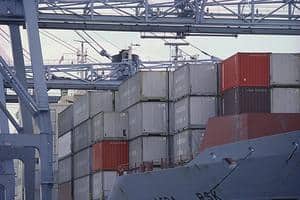A specification which could help to reduce illegal exports of WEEE by setting out basic standards that electronic equipment must meet to be classed as fit for reuse and therefore legally allowed to be sent overseas is set to be made publicly available by early February 2011.
The man responsible for leading the government-backed project to develop the new PAS 141 standard told letsrecycle.com that in order to meet its requirements those involved in reuse would have to meet specific standards in areas such as the functionality of equipment and data eradication.
The development of the standard comes in the wake of concerns over the amount of WEEE that is being categorised as ‘fit for reuse' when it is in fact irreparable, resulting in it being illegally exported for resale or disposal in Asia and West Africa.
It also aims to increase the amount of WEEE reuse, in line with the WEEE Directive and UK regulations and to assure consumers that used equipment is safe, having gone through specific testing, as well as reducing material to landfill and encouraging the reuse sector.
Single test
Gary Griffiths, who has led the development of the PAS 141 as chair of the Reuse task group for the now defunct-WEEE Advisory Body, explained that, under the current situation there was currently no clear single test for reuse.
“Within the current set-up of waste transfer, the regulators require on correspondence guidelines on shipment of WEEE – they require a test to be done to make sure equipment is fit for purpose but nobody has defined what the test is,” he said.
Mr Griffiths noted that, in particular, the PAS 141 would address the issue of data eradication, in light of high profile cases where both business and household electrical equipment from the UK has ended up being sold at a premium in Africa due to it containing previous owners' personal information.
“The PAS says equipment should be functional, electronically safe and also all data should be removed and not made available to any other users,” he explained.
And, the specification is also set to include a ‘Reuse Label' which companies and third sector bodies can attach to electronic equipment to show that their processes have successfully met the requirements of the PAS 141.
The PAS 141 is set to be accompanied by a certification scheme that, Mr Griffiths explained, the former head of the WEEE Advisory Body, Peter Calliafas has been involved in developing, to be formally launched this summer.
Key players
The PAS says equipment should be functional, electronically safe and also all data should be removed and not made available to any other users
Gary Griffiths
Outlining exactly how he hoped the scheme would be used by key players in the WEEE recycling sector, Mr Griffiths said that, in terms of producer compliance schemes, “the idea is that they adopt the requirement for the PAS to be met by their suppliers, both ATFs and AATFs”.
He suggested it could also benefit enforcement agencies, such as the Environment Agency, allowing them to develop guidelines and, by making it clear what equipment had met the reuse standard, allowing them to focus their resources on potentially illegal exports. The Agency has identified illegal exports of WEEE as one of the key areas it is focusing on at the moment.
And, he noted that the PAS had been developed so it could used by both WEEE companies and those involved in dealing with used electrical equipment (UEE).
“We have tried to address the used electrical equipment, or UEE, and waste – so organisations who claim they're exporting material as UEE is also covered by the PAS,” he said.
Timeline
Mr Griffiths, who is also head of sustainability for Essex-based IT asset recovery firm RDC, paid testament to those who had volunteered their time to help develop the PAS 141 over the past couple of years, with the department for business, innovation and skills (BIS), regulatory bodies, reprocessors and third sector organisations all having helped to developed it.
And, he said that the specification was now set to be made publicly available via the British Standards Institute (BSI) website either later this month or in early February.
“The specification lasts for two years during which BIS will own it and review it with the BSI, there's a possibility it could then become a British or international standard,” he explained.
Mr Griffiths also revealed that there was already interest in the specification from overseas, and in particular from the man responsible for guiding the recast of the EU WEEE Directive through the European legislative system, MEP Karl Heinz Florenz, the US Environmental Protection Agency and from African countries.












Subscribe for free